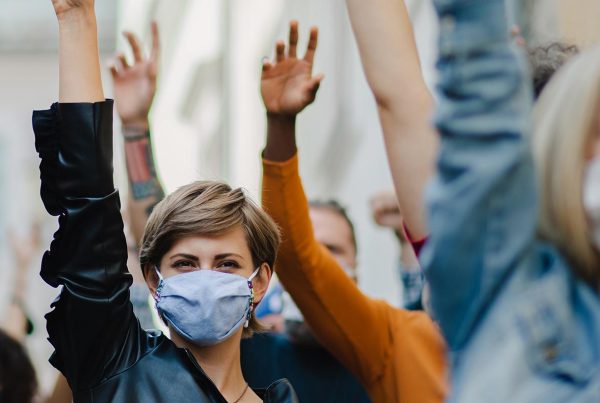Canada has a long history of engagement with the United Nations. If you are interested in learning a bit more about the UN and Canada from its founding to the present day, read on!
Because TalkRights features content produced by CCLA volunteers and interviews with experts in their own words, opinions expressed here do not necessarily represent the CCLA’s own policies or positions. For official publications, key reports, position papers, legal documentation, and up-to-date news about the CCLA’s work check out the In Focus section of our website. For more information about CCLA and the UN, see the resource list at the end of this article.
The United Nations (UN) was officially established on October 24, 1945 following the required ratification of the UN Charter by a majority of signatories as well as China, France, the USSR, the UK, and the US. As a founding member of the United Nations, Canada has played a key role in the drafting of the UN Charter and contributing to various UN undertakings. Many of the UN’s endeavours focus extensively on the importance of human rights, which have, in turn, contributed to and inspired the development of civil rights protection instruments in Canada.
An important distinction in this respect is the difference between human rights and civil liberties. Human rights are the most fundamental of rights that are universal to all human beings. Conversely, individuals enjoy civil rights by virtue of citizenship. Civil liberties represent a state guarantee that certain rights of its citizens, such as free speech and due process, will be protected. Since advances in both human rights and civil liberties work toward the same goal, much of the UN’s work in the area of human rights can potentially have an impact on Canadian civil liberties.
Drafting of the Universal Declaration of Human Rights
John Peters Humphrey, a Canadian law professor, had a great impact on human rights as we know them today. As the Director of the United Nations Human Rights Division, he was tasked with drafting an International Bill on Human Rights. Much of Humphrey’s time in this role was dedicated to the creation of the Universal Declaration of Human Rights. He was instrumental in finishing the first draft of this important document, and championed its importance until the UN General Assembly adopted it in 1948. Humphrey is now recognized as the father of human rights following the discovery of his original drafts of this Declaration at McGill University.
The Universal Declaration of Human Rights lists the fundamental human rights that should be universally protected throughout the world. It was one of the inspirations for Canada’s own legislation, the Canadian Charter of Rights and Freedoms, in 1982, thus entrenching the rights laid out in the Universal Declaration as civil rights. Much of what was codified under the Universal Declaration of Human Rights can now be enforced by Canada’s courts through the Charter.
Peacekeeping
Canada is best known for its role in United Nations peacekeeping efforts. Lester B. Pearson spearheaded the idea of peacekeeping as a possible solution to the Suez Crisis, when Britain, France and Israel attempted to prevent Egypt from seizing control of the Suez Canal.
He was awarded a Nobel Peace Prize in 1957 for the establishment of the United Nations Emergency Force (UNEF) and its role in resolving the Suez Crisis. Canada has played an important part in the United Nations’ peacekeeping program ever since; up until the mid-1990s, Canada was the only country that had contributed to every UN mission. Canada’s leadership in this area has waned since then, however Canada’s current Prime Minister seems interested in reviving and strengthening Canada’s role in peacekeeping efforts.
Security Council
Since the establishment of the UN, Canada has served six terms on the UN Security Council, the UN body responsible for maintaining international peace and security. The last term served was from January 1999 to December 2000. The Harper government lost the bid for a seat to Portugal in 2010. The work of the Security Council is extremely important in responding to international crises and threats to peace. In doing so, the Security Council uses a number of instruments to maintain and restore international peace and security; it has the power to call upon parties to peacefully settle disputes, impose sanctions, and even authorize the use of force. For example, on March 17, 2016, the Security Council responded to the ongoing crisis in South Sudan by encouraging the parties involved to take specific steps toward implementing a peace deal.
Recently, Prime Minister Trudeau, in an effort to become more involved with the UN, has spoken of his interest in running for a seat on the Security Council to renew Canada’s commitment to the UN.
Human Rights Instruments & Implementation in Canada
Once Canada ratifies international human rights conventions, there is an obligation to implement them and report on this implementation to the UN. However, a fundamental component of Canada’s Constitution is the division of powers between federal and provincial governments, which can be problematic when it comes to implementation. While the federal government has the exclusive power to ratify international instruments, it cannot legislate in matters of provincial jurisdiction, including civil rights. This requires cooperation between the federal, provincial, and territorial governments to ensure the proper implementation and monitoring of Canada’s obligations under human rights instruments.
Most recently, Canada’s international obligations required it to report to two Committees on its implementation of human rights instruments. As part of this process, the CCLA also submitted detailed reports. The Human Rights Committee monitors the implementation of the International Covenant on Civil and Political Rights by state parties. The CCLA’s report focused on the deficiencies and gaps in Canada’s implementation of this Covenant, but also highlights positive progress. In January 2016, the CCLA also reported to the Committee on Economic, Social and Cultural Rights on Canada’s implementation of the International Covenant on Economic, Social and Cultural Rights.
For further information on Canada’s history with the UN, see:
Canada and the United Nations: A Half Century Partnership
Some of CCLA’s most recent submissions to the UN are linked in the article above. For further information regarding CCLA’s engagement with the UN, see our main website, which includes these articles:
CCLA welcomes concluding observations for Canada by the UN Human Rights Committee
CCLA appears before UN Committe Against Torture
Canada to join critical Anti-Torture Protocol
See also our Talk Rights resources on Treaties and Conventions, Canada and the UN In the News, and Useful Links and Resources.
About the Canadian Civil Liberties Association
The CCLA is an independent, non-profit organization with supporters from across the country. Founded in 1964, the CCLA is a national human rights organization committed to defending the rights, dignity, safety, and freedoms of all people in Canada.
For the Media
For further comments, please contact us at media@ccla.org.




